
Background information
The rise and fall: how Blizzard lost its magic
by Philipp Rüegg

With abuse scandals, games ditched after less than a year and share prices at a record low, what’s going on at this once so respectable family company?
Twenty-one thousand people around the world work at Ubisoft, most of them on Assassin’s Creed Shadows. The game’s shrouded in an immense sense of expectation. If Ubisoft’s jaunt to feudal Japan doesn’t turn into the sales success it’s hoped to be, the company could be facing a huge upheaval. One that may cause the collapse of one of the game industry’s oldest family businesses.
Ubisoft’s story begins in Brittany. More specifically, in a small village in northwestern France; the kind where you might expect to run into the hardy Gauls of Asterix and Obelix fame. Instead of Gauls, however, you’ll find the Guillemots – a family that runs a farming company. Taught to think like entrepreneurs from an early age, the five Guillemot sons help out with the business.
Against a backdrop of shrinking margins, Claude, the eldest Guillemot brother, comes up with the idea of selling CDs to farmers. A short while later, they start selling computers too. Computer games follow as the next logical step. At this point, the brothers realise that their French supplier’s charging twice as much for games as in the UK.
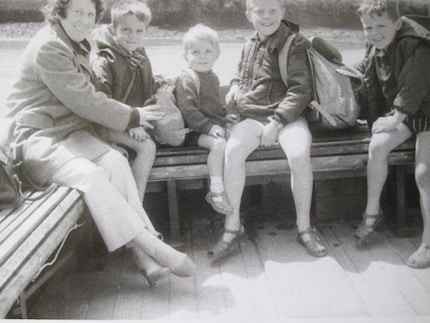
In 1984, the young Guillemots start a mail-order company for computer games with their own direct imports. Their mother supports them on the condition that each brother has an equal number of shares in the company. The business is a roaring success – but it’s just the beginning. «We said ‘Okay, we really have to see how we can create those games, because we know how to buy them. We know what is working, as we love to play those games, so we should organise ourselves to create them,’» said Yves, the middle brother, in a 2018 interview with Gameinformer. In 1986, the siblings found Ubi Soft. The company name combines the words «ubiquitous» and «software». Although the words are written separately at first, the company name’s changed to Ubisoft in 2003. Yves Guillemot becomes CEO.
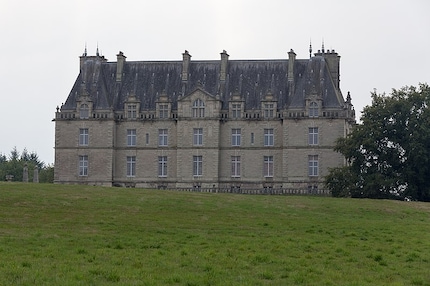
Ubisoft’s very first game is called Zombi. In this action adventure inspired by horror icon George A. Romero, you and four other characters go rummaging through a shopping centre. If one of the characters dies, they turn into a zombie and you have yet another monster to contend with. Twenty-six years later, the game gets a WiiU sequel: ZombiU.
Agnès Haegel and Michel Ancel are among the first developers to join Ubi Soft. Ancel’s still a teenager when he starts. But despite his young age, his game concept for a platformer based on his childhood memories captivates the team’s interest. In 1995, Rayman’s released as a launch game for the PlayStation 1. It’s originally supposed to be released on the Atari ST, then the eventually discontinued Super Nintendo CD system. Rayman ends up becoming one of the best-selling PlayStation games of all time. After that, Ubi Soft becomes a force to be reckoned with in the games industry. Alongside its successors Rayman 2: The Great Escape and Rayman 3: Hoodlum Havoc, the series sells over 20 million copies.
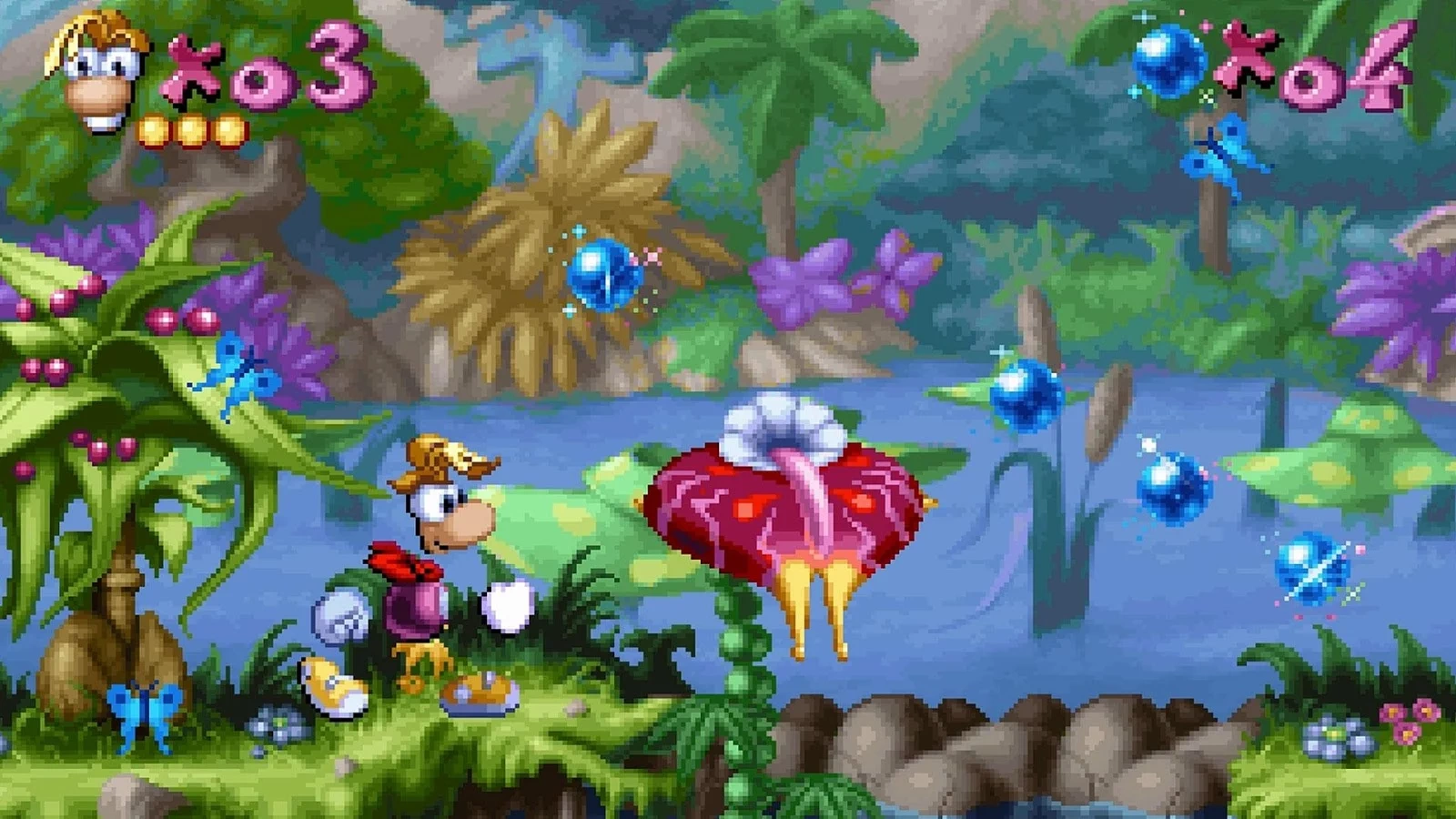
In 1996, Ubi Soft goes public and raises over 80 million US dollars in capital. In the two years that follow, the company opens game studios in Annecy, Shanghai, Montreal, Milan, Casablanca and Barcelona. By 1998, almost 1,000 people are working at Ubi Soft, laying the foundations for what will later become a global corporation.
To exploit the growing popularity of the internet, the brothers found more studios, including Gameloft, dedicated to free-to-play games, in 1999. «The market was there, but the games were very difficult to monetise. So it was in a way a bit too early,» Yves told Gameinformer. Instead, they sell the game rights to their new studios, increasing Ubi Soft’s share value fivefold. The brothers immediately invest the newly acquired capital in Red Storm. Ubi Soft struggles to gain a foothold in the USA, but the creators behind Tom Clancy’s Rainbow Six are set to change that. It’s a risk that’ll pay off.
With the successful US author’s name behind it, the company gets to work on expanding military stealth games Rainbow Six and Ghost Recon. Ubi Soft teams up with Microsoft for Splinter Cell. The initially Xbox-exclusive title’s set to rival PlayStation’s Metal Gear series. By focusing on the Xbox, Ubi Soft’s able to push performance to the max. Splinter Cell sets new graphical standards, especially when it comes to light and shadow effects. The first instalment wins numerous awards, marking the beginning of a successful series.
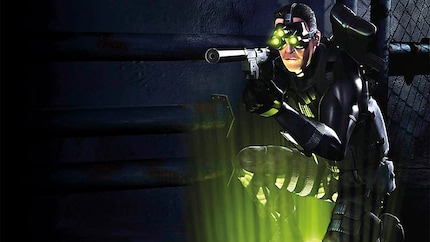
A few years later, Ubi Soft acquires the rights to Myst and Prince of Persia when it takes over an educational software company. Prince of Persia: The Sands of Time is released in 2003, going on to sell millions of copies. Only in the USA did sales initially falter. Ancel’s Beyond Good & Evil, released around the same time, fares even worse. Although the game develops into a fan favourite over time, it’s one of Ubi Soft’s first real flops.
In the same year, the company announces it’s changing its name to Ubisoft. It also unveils its new logo, the foundation of which is still used today.

Around the turn of the millennium, numerous large companies are consolidated. Squaresoft joins forces with Enix, while Sega joins up with Sammy. Vivendi Games merges with Activision, going on to call itself Activision Blizzard. Blizzard already belonged to Vivendi at the time.
Having lost its status as one of the industry’s major players, EA is left behind. But a few years prior, things could have gone in a completely different direction.
In 2004, Yves Guillemot gets a call from EA saying: «We’ve just bought 20 per cent of your company. We just wanted to give you a heads-up because we’re communicating it publicly tomorrow.» Ubisoft is shocked. Employees fear the company culture will get lost under EA’s influence. But EA doesn’t really know what it wants. The company’s involved in takeover negotiations with Activision at the same time. However, the deal falls through and ends with the roles reversed. Activision Blizzard becomes the new giant, with EA forced to take a back seat.
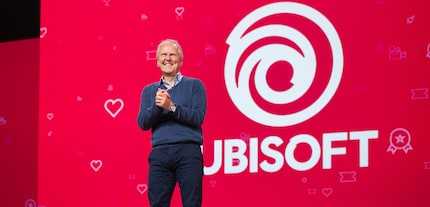
One of the seminal moments in Ubisoft’s history takes place in 2007. Assassin’s Creed, the game still considered the company’s undisputed flagship almost 20 years later, is released. Under the direction of producer Jade Raymond, Ubisoft delivers a fascinating climbing and stealth game with groundbreaking animations and graphics.
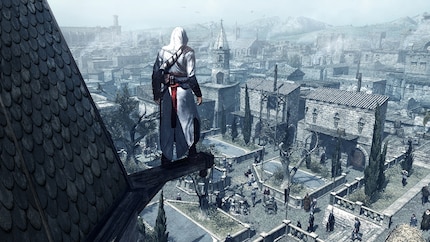
Ubisoft has a Prince of Persia sequel for the new console generation in the pipeline. However, when the PS3 and the Xbox 360 hit the market in 2005, the engine developed for them allows the studio to think bigger. As a result, Assassin’s Creed sees the creation of a brand new franchise.
It centres around Altaïr, an assassin fighting against the Knights Templar in 1191 during the Crusades. The focus on locations steeped in history, made real with unprecedented attention to detail, becomes the series’ trademark. What’s more, the freedom created by its parkour-style movement leaves gamers gobsmacked. At this point in time, climbing passages in other games are rudimentary. Altaïr, on the other hand, can climb his way through the world almost completely freely – and looks smooth doing it too.
«When I saw Assassin’s Creed for the first time, I thought, ‘We did it again. After Prince of Persia and Splinter Cell, that’s another jewel.’ We were very lucky that we came at the moment when there weren’t that many new franchises. We profited by filling that empty space,» says Alain Corre, Ubisoft’s Executive Director in an interview with Gameinformer.
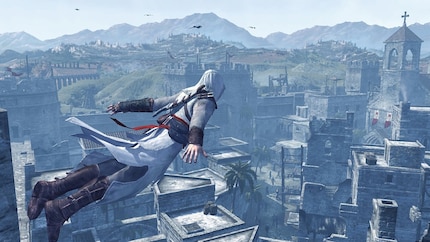
While the first Assassin’s Creed was a little rough around the edges, Ubisoft’s sequel is an all-round success that silences its last remaining critics. It’s expanded into a trilogy about the charming Florentine Ezio Auditore. Alongside pirate adventure Black Flag, which followed in 2013, Ezio’s adventures turn into some of the biggest fan favourites. However, the crucial turning point in the story of the series is yet to come.
In 2012, Far Cry 3 lays the foundations for the infamous Ubisoft formula. The third open-world action game enthrals fans and critics alike with a charismatic antagonist and an open game world bursting with possibilities. While the world in Far Cry 2 was still very limited in terms of exploration, you can move around freely in part three. It also opens the side-quest floodgates, giving players the opportunity to fatten up their wallets by hunting animals, race around on a four-wheeled ATV and climb radio towers to scope out an area. Having copied the radio towers from Assassin’s Creed, Far Cry is the first obvious example of how Ubisoft games evolve in tandem.
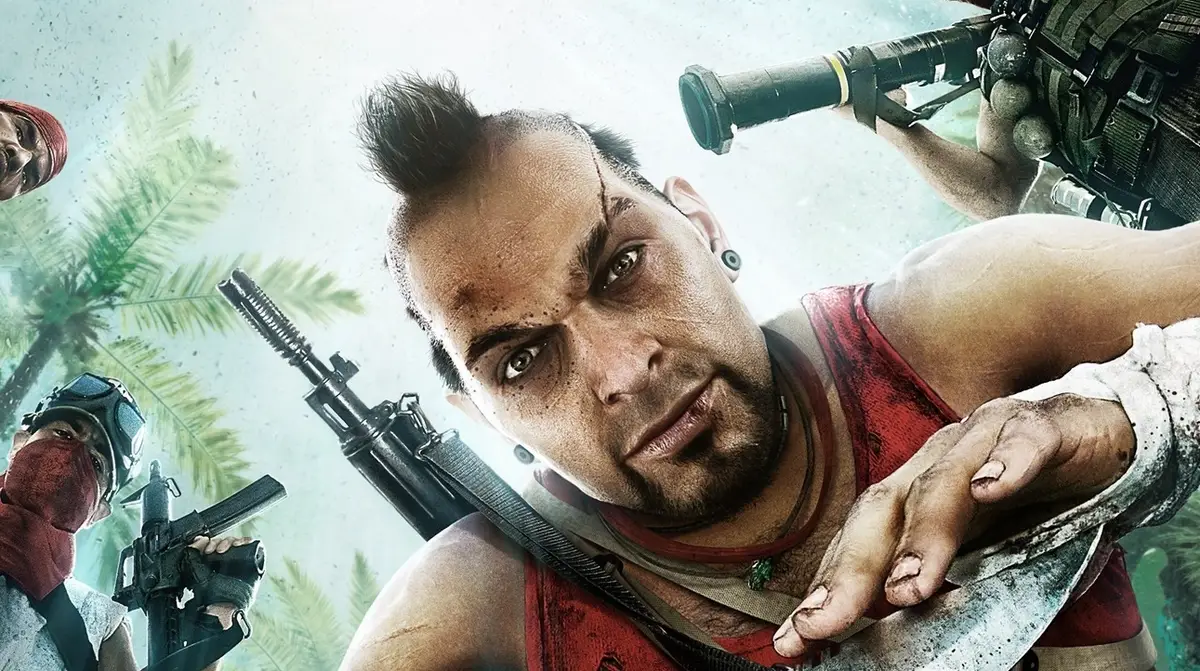
While the third Far Cry was brimming with innovation, the fourth instalment released just two years later is simply more of the same. Fans are beginning to get tired of it. And when Primal is released in 2016, sporting the same pace and the same map as the fourth game, that repetitiveness becomes all the more apparent. Even the Stone Age setting can’t hide it.
While Far Cry’s treading water, Assassin’s Creed’s opening a new chapter. The 2017 Egyptian adventure, Origins, boasts the largest world to date (not counting the sea in Black Flag) and transforms Assassin’s Creed into a fully-fledged, open-world role-playing game. Experience points, talent trees and a quest system are now a central part of the series. And as was the case in the previous instalments of Far Cry and Assassin’s Creed, map clutter is on the increase. The map’s littered with colourful icons for collection tasks, side quests, undiscovered locations and all sorts of other things.
This also increases playing time. Origins takes over 50 hours to complete, while the first instalments of the game could be played through in about 25 hours. Odyssey, released in 2018, takes the playing time up to 85 hours. As for Valhalla, the final instalment, many players break the 100-hour mark. Though gamers are getting plenty of bang for their buck, opinions differ on the quality of the content. Ubisoft calls it the biggest Assassin’s Creed launch of all time. Apart from the 1.8 million copies sold during the game’s first week, Ubisoft doesn’t release specific sales figures. As of today, there are 17 studios and over 2,000 employees around the world involved in the development of Assassin’s Creed. The series has sold over 200 million copies in total.
In the wake of the MeToo movement, allegations of a toxic workplace culture) flare up at Ubisoft in 2020. Bloomberg reports that more than a dozen people have accused Ubisoft employees of sexual harassment and abuse. Allegations are levelled at several members of the management team, including long-standing Chief Creative Officer and personal friend of the Guillemot family, Serge Hascoët, Vice President of Editorial, Maxime Béland, and Vice President of Editorial and Creative Services, Tommy François. The accusations had reportedly gone unaddressed for years.
CEO Yves Guillemot promises an investigation as well as improvements to the company culture. This is followed by numerous resignations, dismissals and leaves of absence. One of those to go is Rayman creator Michel Ancel, who leaves amid allegations that his management style is abusive and arbitrary. Ancel denies the allegations and is then rehired as a consultant for the next Rayman instalment.
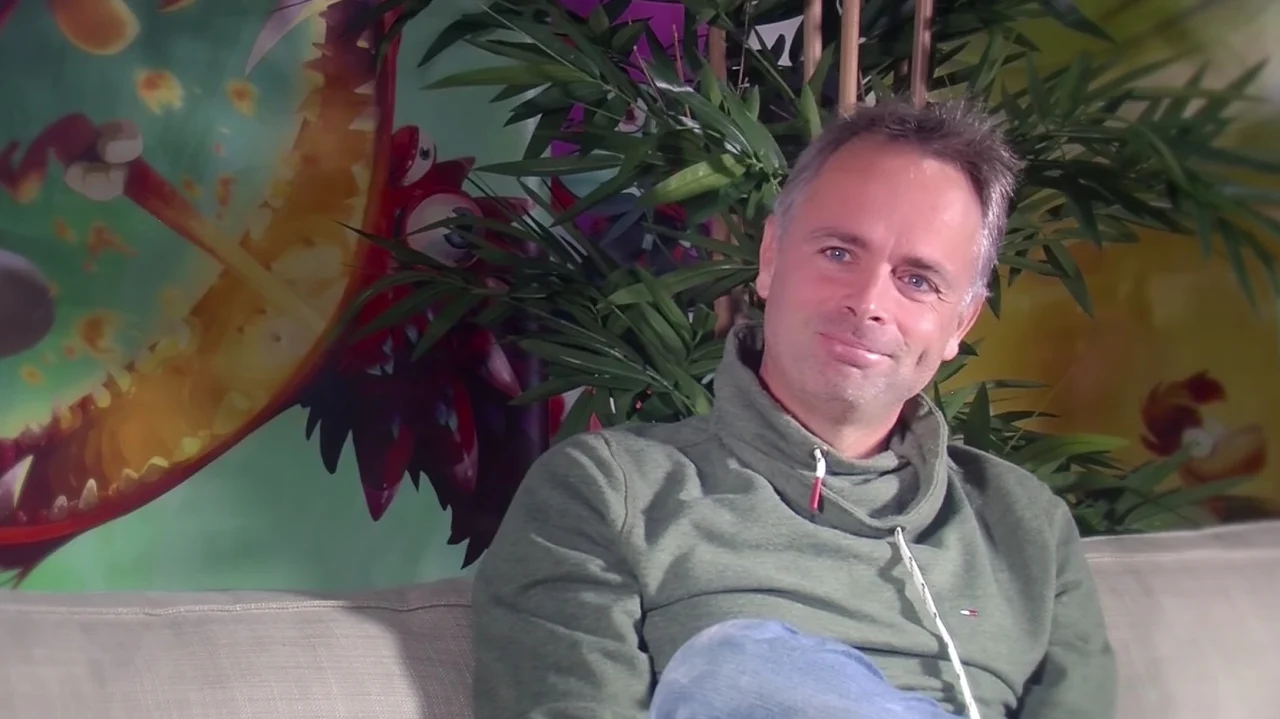
Guillemot’s son Charlie also leaves the company in 2021. Under his leadership, a trailer released for the mobile game Tom Clancy’s Elite Squad portrays Black Lives Matter protesters as criminals. Ubisoft withdraws the trailer and issues an apology.
The scandals cast a shadow over the company, which has always presented itself as cosmopolitan and welcoming.
Over the last 20 years, Ubisoft’s portfolio has got thinner and thinner. While over 800 games were developed or distributed by Ubisoft between 2000 and 2009, the figure fell to just under 700 between 2010 and 2019. Since 2020, there have been fewer than 240. Extrapolate that over ten years, and you get 600 titles. Although that may still sound like a lot, this figure includes numerous spin-offs for additional platforms such as mobile or new editions of existing titles. This poses risks if the brands don’t develop as hoped.
Current passion projects include Far Cry, Assassin’s Creed, Ghost Recon, Rainbow Six, Just Dance and Watch Dogs, another open-world game that follows the Ubisoft formula.
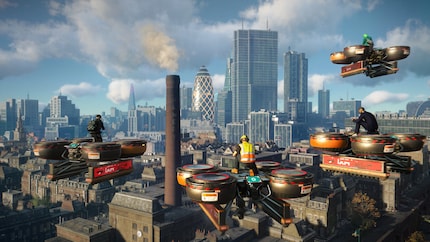
Twenty years ago, Ubisoft merged Blue Byte, the German studio behind The Settlers, into its holdings. The most recent Settlers instalment, New Allies, was an absolute flop. And this despite being postponed by a year following feedback on the beta phase. Things are going better with the Anno series, which is now also being developed by Blue Byte following a studio merger. The brand was transferred to Ubisoft in 2007 with the acquisition of German company Sunflowers.
Another important European acquisition was Massive Entertainment. The Swedish studio’s belonged to Ubisoft since 2008. The first two instalments of The Division were extremely successful. When Star Wars Outlaws was released in the autumn of 2024, however, Massive proved to be less adept. Although it was supposed to be the big money-spinner of 2024, Outlaws’ technical shortcomings and lack of gameplay originality led to disappointing sales figures.
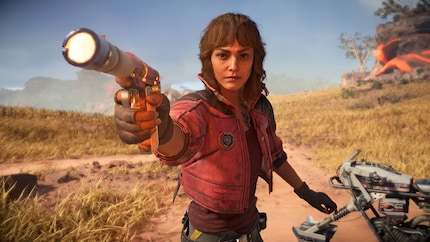
Avatar: Frontiers of Pandora is further proof that a brand’s fame is no guarantee of success. The game, which many describe as Far Cry with blue people, swiftly disappeared from screens without much fanfare. It speaks volumes that Ubisoft hasn’t publicly said whether its adaptation of the highest-grossing film of all time was a success.
The pirate multiplayer game Skull and Bones was an even bigger flop. After being postponed countless times, it was finally launched in early 2024. Given its Metacritic score of 59, you can’t exactly call it a Quadruple A game.
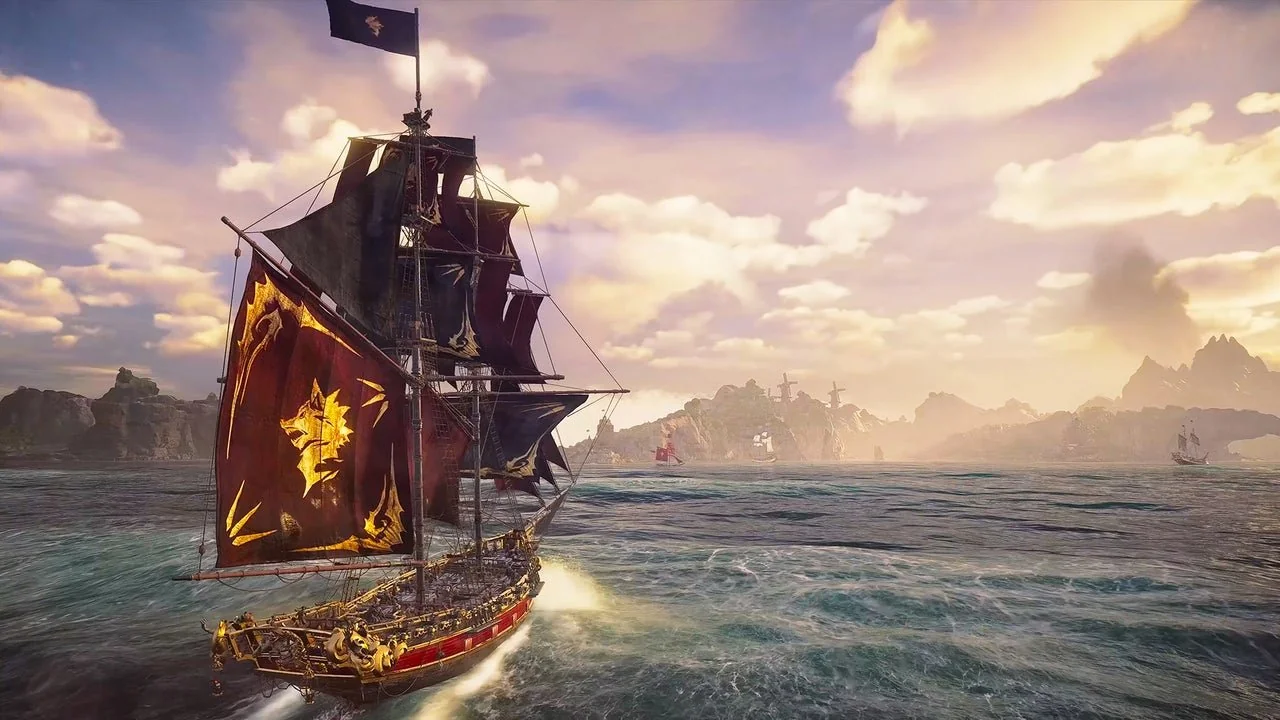
At least Skull and Bones is still out there. The free-to-play shooter Xdefiant, on the other hand, was pulled within less than a year. Although the servers remained online until June, 277 employees were made redundant beforehand (article in German).
Another free-to-play shooter at least made it to the two-year mark. Although Hyper Scrape tried to benefit from the battle royale craze, it was unable to hit critical mass.
It’s also unlikely there’ll be another sequel to the open-world racing game The Crew. The second instalment was unable to build on the success of the first. While the original game broke the ten million mark, the second version fell short of expectations, as can be seen from Ubisoft’s financial report. Even part one can’t be retired without a blot on its record. In fact, after Ubisoft shut down the game’s servers, two players decided to sue the company (article in German).
Ubisoft isn’t having much success at the moment. Even the Tom Clancy label isn’t a surefire guarantee of favourable results. Ghost Recon Breakpoint is considered a flop in terms of both sales and critical reception. Rainbow Six Extraction is hardly worth a mention. And The Division 2 required numerous updates before players were satisfied.
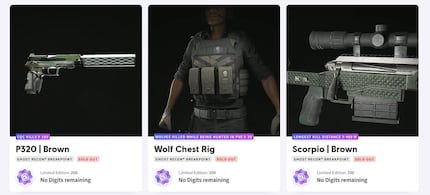
When Ubisoft does create new brands, such as the underrated Immortals Fenyx Rising or the original roller-skating multiplayer game Roller Champions, sales are disappointing. And with over 45 studios and 21,000 employees worldwide, the cluster risk is immense if games don’t perform as well as hoped. The company’s share value (website in German) has been declining for years, and is currently at its lowest level since 2014.
This brings me back to Assassin’s Creed. Expectations surrounding the next game are extremely high. Having already been postponed twice, Shadows is now scheduled for release in March 2025. Calls for a change of management at Ubisoft are getting louder and louder. Rumours of a takeover aren’t letting up.
The Guillemot family currently owns 15 per cent of Ubisoft and holds 20.5 per cent of the voting rights. Just behind it is the Chinese corporation Tencent, which owns 10 per cent of the company and 9.2 per cent of the voting rights.
If Assassin’s Creed Shadows isn’t a hit, the Guillemots won’t be able to hide from their investors much longer – despite being majority shareholders. A sale could change the company dramatically. The question is, would that make things better or even worse?
As a child, I wasn't allowed to have any consoles. It was only with the arrival of the family's 486 PC that the magical world of gaming opened up to me. Today, I'm overcompensating accordingly. Only a lack of time and money prevents me from trying out every game there is and decorating my shelf with rare retro consoles.
Interesting facts about products, behind-the-scenes looks at manufacturers and deep-dives on interesting people.
Show all